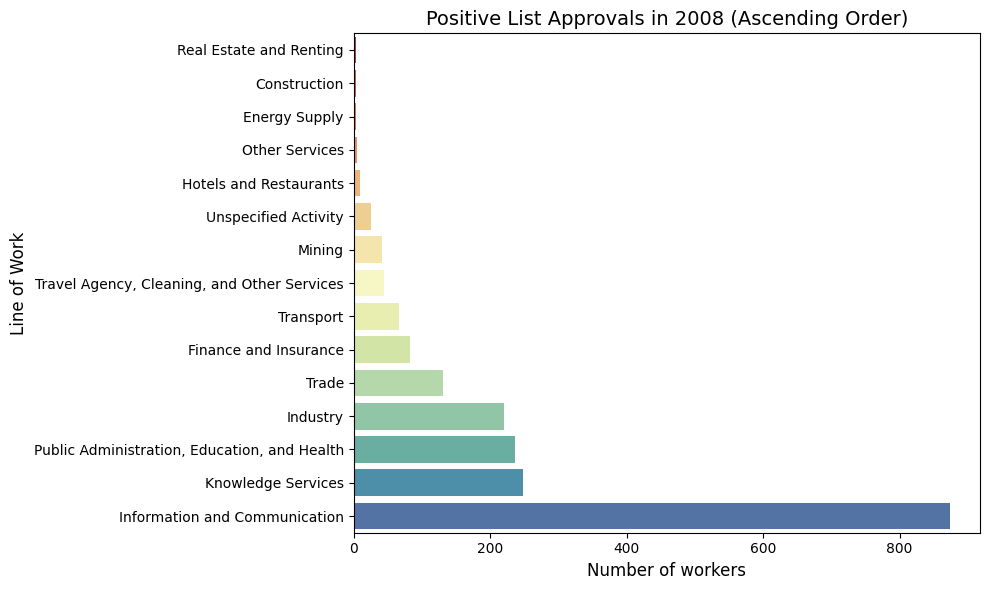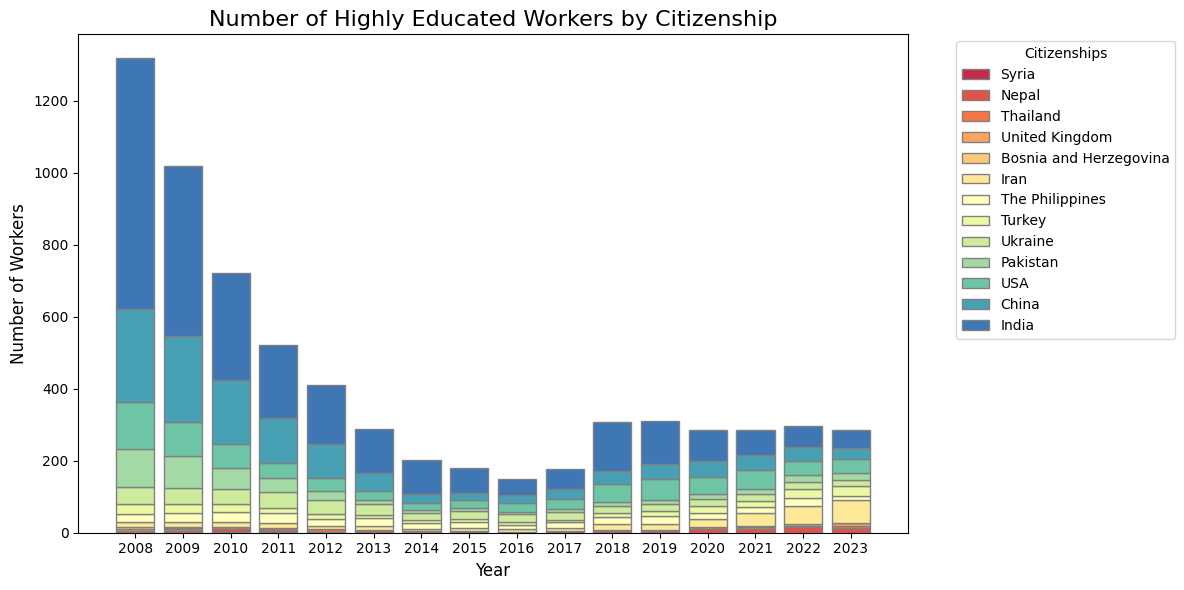Here is an article I wrote about the Danish Positive List. Below is the analysis I conducted in order to write it.
In 2008, the VKO government introduced a way for people from non EU countries to migrate to Denmark in areas of skills shortage.
At first the scheme was for so-called highly educated foreigners but in 2020 was expanded to include other skilled professions in areas such as healthcare and construction.
It costs over 6000 kroner for an application to be accepted on this scheme. Data from jobindsats.dk
This graph shows how many people are working in Denmark on this type of permit. 2008 when the scheme started, it was popular but many people either stopped working in Denmark or changed to another kind of residency status. The number of people working on this scheme granted started rising in 2017 but the most popular lines of work shifted from 'Information & Communication' to 'Public Administration, Education and Health'.
This graph shows the number of new permits on the Positive List for highly educated foreigners. There was a significant increase in Knowledege Services in 2018 but the rest of the increases have been modest.
This graph is a more detailed look at which lines of work were granted the original Positive List permission in 2008.
These are the figures for people working in Denmark on the positive list for Skilled Workers.
These are the NEW positive list skilled workers since the scheme began.
What are the nationalities we are talking about?
Throat Clearing
Despite being made for "third country" (as in, non-EU, non-Nordic) immigration, some EU and Nordic migrants have been accepted, presumably for the sake of their third country spouses.
Some people commute into Denmark on this scheme, so have not migrated into Denmark as such. Some do not have full time employment on this scheme.
Let's just look at the third-country immigration for now:-
How interesting that they recruited so many from India and China under this scheme but the numbers dropped off... did they get another type of residency or leave?
🔮 Nepal is going to be a big player in Danish immigration in the future.
Rejections
There are rules about income to prevent "social dumping" (where foreigners get worse working conditions and pay than locals). The wording is that the salary should be "ordinary", compared to national pay statistics. This means that some people are rejected because their compensation would be #higher# than ordinary. There have been some cases in the media about this rule making it difficult for employers to recruit in skills shortage areas. (https://ekstrabladet.dk/nyheder/samfund/straffet-for-at-give-ansat-mere-i-loen/8964271)
In the evaluation by SIRI, you can see the numbers of rejections in the Highly Skilled positive list are much higher than permissions granted (388 vs 264) and you can even see which exact professions have been getting permission https://www.ft.dk/samling/20222/almdel/UUI/bilag/71/2720734/index.htm










